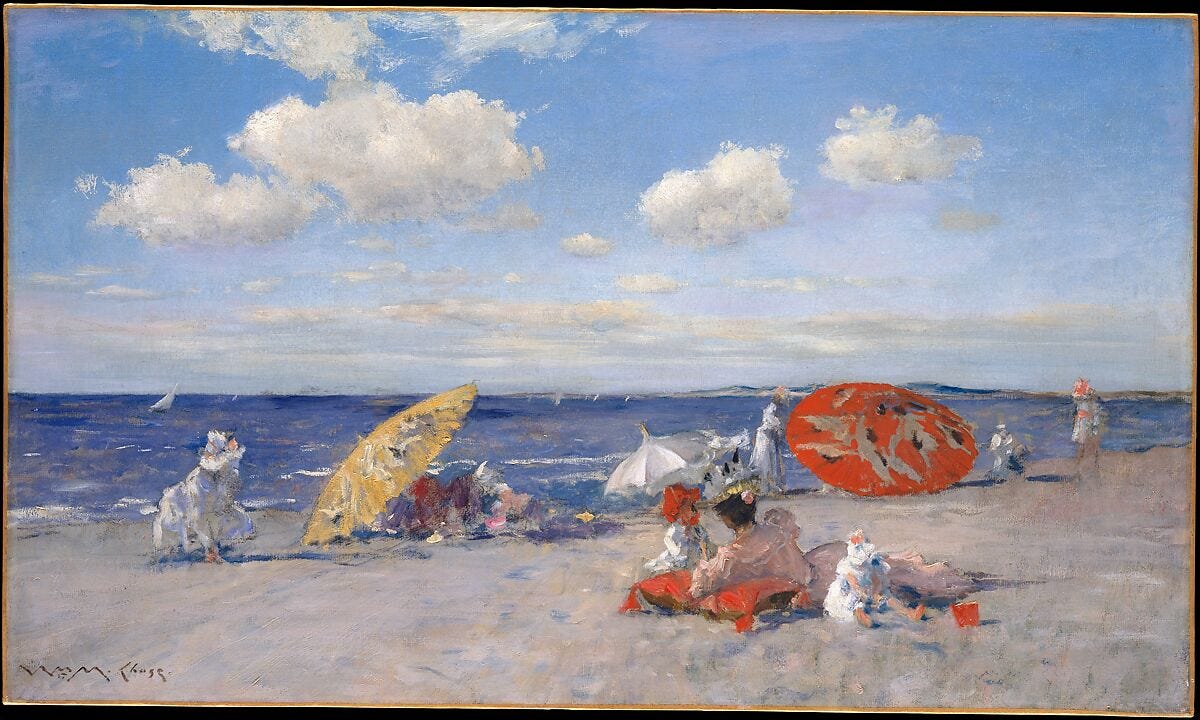It’s been a busy summer, brimming with summer activities like hiking at our local nature preserve and writing in the margins and slivers of time between pool/beach time and painting with children. But I thought I’d send a note about what I’ve been thinking about this summer.
Right now I’m reading a series of essays about successes and failures in Christian fiction and art. The essays grapple with questions like these: What defines Christian from secular fiction? What role does fiction as an art form play within the Christian worldview and imagination? What criteria distinguish it from other kinds of fiction?
The first place to start is why literature is important for a flourishing human life. It awakens our moral imagination and sharpens the range of our intellectual, moral, and spiritual vision. One of my favorite quotes about the purpose of reading comes from Annie Dillard. In typical Dillard-fashion, she puts the responsibility to find answers in our hands. In The Writing Life, she asks us:
Why are we reading, if not in the hope of beauty laid bare, life heightened and its deepest mystery probed? Can the writer isolate and vivify all in experience that most deeply engages our intellects and our hearts? Can the writer renew our hope for literary forms? Why are we reading if not in hope that the writer will magnify and dramatize our days, will illuminate and inspire us with wisdom, courage, and the possibility of meaningfulness, and will press upon our minds the deepest mysteries, so we may feel again their majesty and power?
Fiction also fills in the gaps of our experience. It prepares us to act virtuously through the discipline of reading and through the way we practice wisdom. When we read and discuss literature through the lens of virtue, we train our eyes to see the world—to see one another—with awareness that we each carry a hidden life filled with meaning. It helps us privilege the eternal amid our everyday by being moved with tenderness by our encounters with the souls of others. Reading literature makes us human.
To Ponder
What makes a piece of fiction (or art) uniquely Christian? Do you have an example that is distinct from “celebrity” Christian books or authors?
Thanks for subscribing to A Holy Wonder. If you’ve enjoyed the newsletter or something in it resonated with you, I invite you to share it with others.





This is such a great question, and one that I think of a lot, especially since I am in a Catholic writers club and we all write so differently. I think about it, too, in terms of content. What level of "content" is okay in a Christian work?
Ultimately, I'm still pondering these things. But I think two fundamental aspects of Christian fiction are that 1. It will glorify God by proclaiming the truth about the human condition. 2. It will engage the reader's imagination in a way that points him towards truth/beauty/goodness.
I think both of those aspects are necessary, because even though some stories tell the truth, they don't point us back towards anything good, or they fill our minds with things that are harmful and damaging. For that reason, they seem to fail specifically as "Christian works."